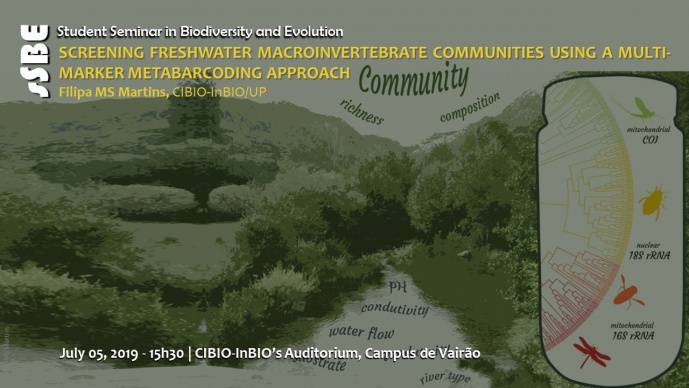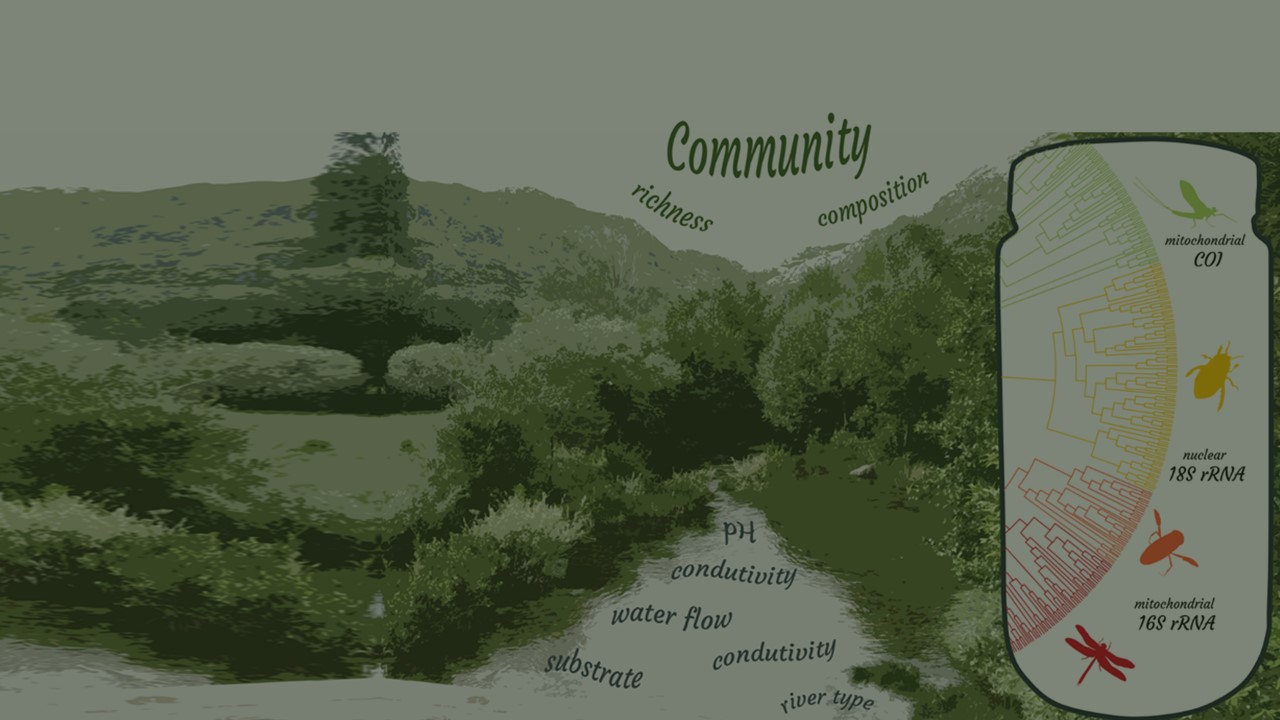SCREENING FRESHWATER MACROINVERTEBRATE COMMUNITIES USING A MULTI-MARKER METABARCODING APPROACH

STUDENT SEMINAR IN BIODIVERSITY AND EVOLUTION

DNA metabarcoding has proven to be a relevant technique in the assessment of benthic macroinvertebrates communities, providing higher taxonomic coverage and resolution than traditional methods. However, there is still a lack of knowledge on the effect of different protocols on the ecological inferences made from these techniques. Here, we analyse the impact of using different markers on the estimation of diversity and composition of macroinvertebrates communities and their relationship with environmental conditions. For this end, we examined ethanol samples collected from 80 river sites at central Portugal using three markers from distinct genomic regions: mitochondrial cytochrome oxidase I gene (313bp) and 16S rRNA gene (~150bp), and nuclear 18S rRNA gene (~130bp). Preliminary results reveal that combining multiple markers improves taxonomic coverage by detecting a wider range of freshwater taxonomic groups. Yet, although the three markers reflect different communities in terms of diversity and structure, they recover similar environmental signals separately and combined. Overall, the use of a multi-marker approach provides additional biodiversity information on these highly diverse and complex communities than single markers, improving our capacity to fully monitor freshwater ecosystems using molecular techniques.
Filipa MS Martins graduated in Terrestrial Environmental Biology at the University of Lisbon (FCUL) and holds a MSc in Conservation Biology from the same University. In 2011, she worked as a researcher at the NERC Biomolecular Analysis Facility in Sheffield where she developed skills in molecular ecology. Afterwards, she worked as a research technician at CIBIO-InBIO until she was awarded a PHD grant from FCT in 2015. Currently, she is enrolled on the 4th year of the BIODIV doctoral program under the supervision of Dr. Pedro Beja (APPLECOL, CIBIO-InBIO) and Dr. Paulo Célio Alves (CONGEN, CIBIO-InBIO).
[Host: Pedro Beja, Applied Ecology]
Image credits: Filipa MS Martins